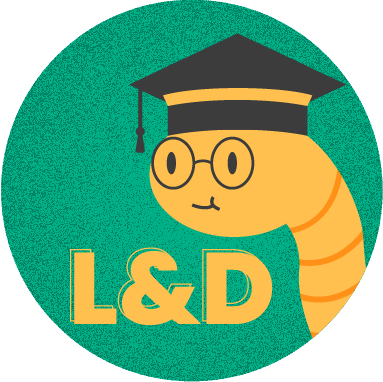Over half of university graduates believe that £9,250 tuition fees for students is ‘bad value’ for money in a recent YouGov poll.
69% of those surveyed agreed that the education provided is not level to the price tag attached to it.
Graduates also felt more pessimistic about university education and the impact it has on their future. 44% of them said most graduates would be worse off in the long run.
So, what ways could the Learning & Development industry help improve university standards?
One of the main issues is the education graduates personally receive. Of those surveyed, only 23% say the cost of it is ‘good value’ for money.
However, with there being record highs of people being accepted for higher education and studying, this statistic is scarily low.
When tackling education, we must look at all factors involved. The learning received, the resources given to students, the facilitators providing the in-person education and the support surrounding all of this.
Learning & Development is interlinked into all of this. So, in mind of this survey, now is the best time to invest in L&D.
Training those providing the learning is a great starting point. It helps ensure the standards you hold are being maintained, but also that these are improved further. The world of learning is ever-changing! Education institutions need to be adapting what they do to gain the engagement of their students.
Have you considered your skills gaps? Is there an element you could particularly improve? Focusing on this and developing support and training around it will improve both the learning provided by facilitators, but most importantly students’ learning experiences.
In December 2020 there were 224,530 academic staff employed in the Higher Education sector which has likely increased as the popularity to study continues to grow.
Therefore, checking in with your staff and ensuring they have the training, supplies, and support they need is key in them reflecting this with their students.
However, alongside teaching, learning also requires good resources, direct learning content, and student support.
Are your resources supporting students in the right way?
Thick paper documents, long PowerPoints and pointing them in the direction of the library is no longer the best response.
A publication found, 80% of universities that have lecture recording technology, have become a virtual production company. In theory, this makes it easier for videos to be recorded and shared with students.
And with video being 12 times more successful than other types of content you should consider creating video content that support lectures.
During the pandemic, it was found that what students were losing out on most at university were live academic interactions.
So, create content that can be interacted with; videos that create discussions, knowledge hubs with activities and online group studies with other students.
However, the importance of physical, in-person learning and support cannot be missed. Have regular contact with students both in and out of lectures and make yourself easily accessible and available for them on-demand. Resulting in a blended delivery style.
Don’t forget, when you spend time supporting a student you are clear with feedback and that they feel they have benefitted from that time with you. Listening and evolving your interactions is a necessity for the benefit of each student’s learning style.
Improving Learning & Development within the education institution pushes audience-centred learning, which is likely to improve students’ experiences with the university.
Although, there are other factors outside the industry, this industry holds big connections in ensuring enjoyment and engagement with education.
It builds value, knowledge, and motivation within others. It’s time to invest in L&D!
There are many learning options to help move you in the right direction. Olano provides four main products and services, and you can find out more on our Services section where we define and explain each in turn.




